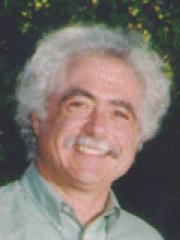
Terry Winograd
Email RSVP required to Rick Martin at remartin@uci.edu by Monday, January 14.
No cost to attend.
Click here for directions and parking information.
Much of the research on human-computer interaction has focused on use by a single individual seated in front of a computer display, who is focusing on the task at hand on the computer. As we begin to implement ubiquitous computing environments, we need to consider use by people who are engaged in interaction with other people, standing at a board or using a mobile device, and in general using the computer as an augmentation to an activity, not as the primary focus of attention. This calls for the development of interaction techniques that are less intrusive and cognitively demanding, and on the integration of computer interaction into the physical and social environment. We have been experimenting with new interfaces in our "interactive workspace," focusing initially on direct interaction with large display surfaces. I will describe some of our recent experiments in the context of a general approach to designing fluent interaction.
See http://interactivity.stanford.edu for more detail.
Terry Winograd is Professor of Computer Science at Stanford University, where he directs theInteractivity Laboratory and the teaching and research program in Human-Computer Interaction Design. He is one of the principal investigators in the Stanford Digital Libraries project, and the Interactive Workspaces Project.
His early research on natural language understanding by computers (SHRDLU) was the basis for two books and numerous articles. Understanding Computers and Cognition: A New Foundation for Design (Addison-Wesley, 1987, co-authored with Fernando Flores) took a critical look at work in artificial intelligence and suggested new directions for the integration of computer systems into human activity. He co-edited a volume on usability with Paul Adler, Usability: Turning Technologies into Tools (Oxford, 1992), and edited Bringing Design to Software (Addison-Wesley, 1996).
Winograd was a founder of Action Technologies, a developer of workflow software, and was a founding member of Computer Professionals for Social Responsibility, of which he is a past national president. He is on the editorial board of several journals, including Human-Computer Interaction, Personal Technologies, and Information Technology, and People.



